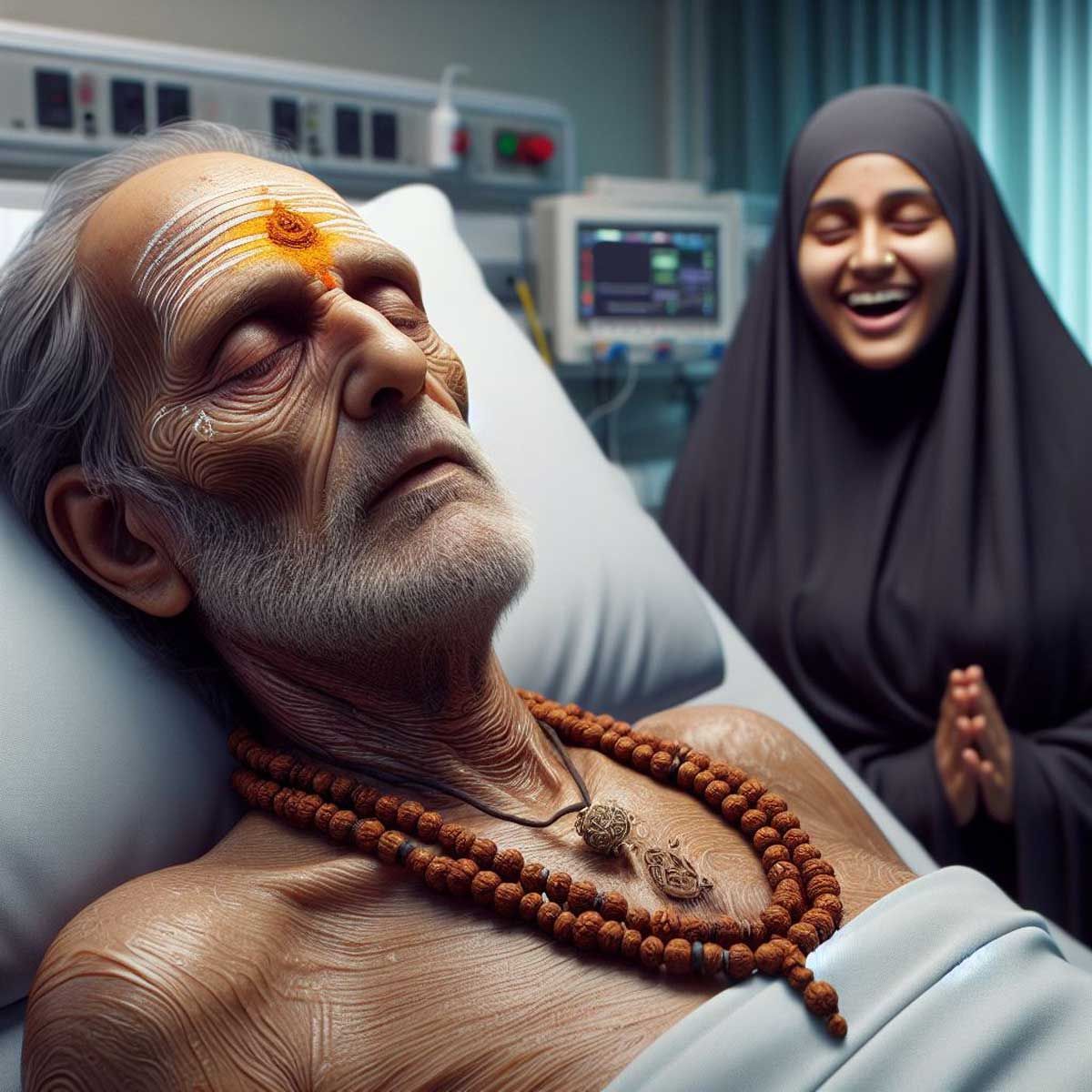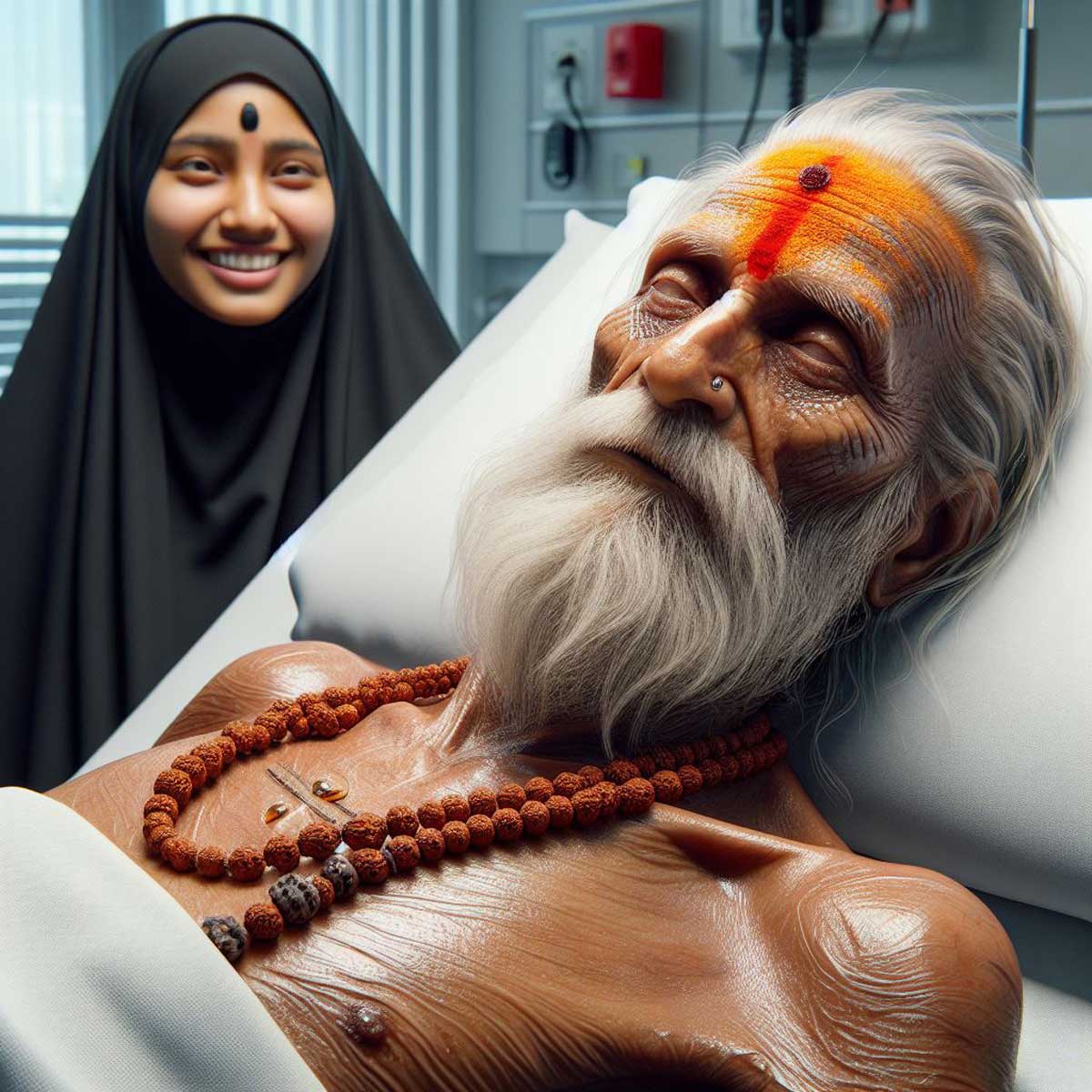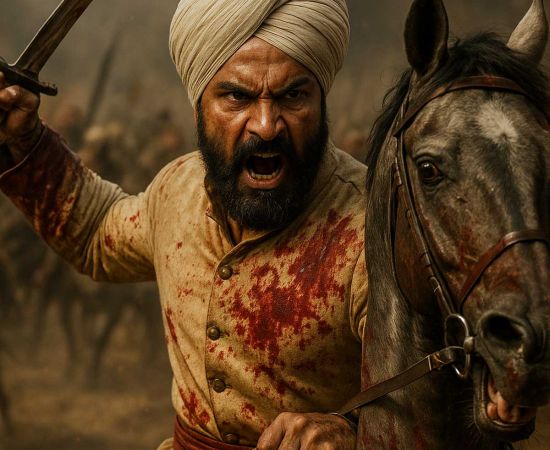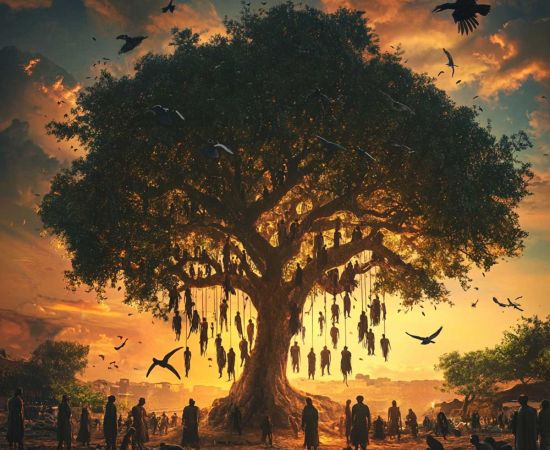MORE COVERAGE
Twitter Coverage
Satyaagrah
Written on
Satyaagrah
Written on
Satyaagrah
Written on
Satyaagrah
Written on
Satyaagrah
Written on
JOIN SATYAAGRAH SOCIAL MEDIA
"Accepting is Halal, Donating is Haram though": Ayesha Rashan, a 19-year-old Pakistani girl, receives a free heart transplant in India, facilitated by Aishwaryam Trust, amidst controversy over bypassing long waiting lists & prioritizing a foreign patient

In a remarkable story of medical compassion and international cooperation, 19-year-old Ayesha Rashan from Karachi, Pakistan, received a heart transplant in Chennai, India, bringing her a much-needed new lease on life. Ayesha, who dreams of becoming a fashion designer, was battling a severe cardiac condition since 2019. Her condition worsened to the point of heart failure, necessitating urgent medical intervention. Despite the critical need, the cost of the transplant was a major barrier for her family, who could not afford the Rs 35 lakh required for the operation.
|
|
In their time of need, the medical team at MGM Healthcare in Chennai stepped in to assist. They connected Ayesha's family with the Aishwaryam Trust, a charitable organization that agreed to fund the entire cost of the transplant. Approximately six months ago, Ayesha underwent the life-saving surgery at no expense to her family, thanks to the generosity of the Trust and the availability of a suitable donor. The donor, a 69-year-old from Delhi, had been declared brain-dead, making this act of donation possible.
The event, however, has sparked intense discussions and raised questions among the public. Many people are curious and concerned about how Ayesha, a foreign national from a country with over 1.2 billion people and a high rate of heart disease, managed to receive a transplant so quickly. Concerns are compounded by the fact that the rate of heart disease in India is reportedly double that of the Western world. Additionally, the situation has highlighted a notable religious aspect: while organ donation is strictly prohibited in Islam, receiving an organ is permissible. This dichotomy has intensified the debate and curiosity among the netizens as they ponder the ethical and religious implications of organ transplants in the Muslim community.
Dr. K G Suresh Rao, co-director at MGM Healthcare’s Institute of Heart and Lung Transplant and Mechanical Circulatory Support, addressed the complexities surrounding the allocation of heart transplants to foreigners. He stated, "A heart is allotted to foreigners only when there is no prospective recipient in the entire country. Since this patient’s heart was that of a 69-year-old, many surgeons hesitated. We decided to take the risk partly because the condition of the donor’s heart was good and partly because we knew this was Ayesha’s only chance."
|
Contrastingly, the public's reaction to this decision has been mixed, with some expressing skepticism and dissatisfaction. The dilemma is particularly poignant in India, where heart disease is prevalent and the demand for organs far exceeds the supply. The controversy intensifies with concerns about the fairness of organ allocation in a country with such a large and needy population. Rakesh Krishnan Simha, a vocal critic, argued that organ transplants for foreigners, especially those from neighboring countries like Bangladesh and Pakistan, should be outright banned. He expressed his discontent by saying, "Each year thousands of Indians die waiting for a heart transplant. However, a Pakistani girl jumped the queue and received an Indian heart free through leftist architect Chitra Vishwanath’s Aishwaryan Trust. The heart was flown from Delhi to Chennai for the Pakistani girl. The doctors claim nobody wanted it in Delhi, but who knows if these doctors are being economical with the truth to avoid controversy."
|
The decision to provide a heart transplant to a Pakistani girl at MGM Healthcare in Chennai has stirred significant controversy and debate among the public, reflecting deeper nationalistic and political tensions. One user strongly criticized the political and healthcare leadership in Chennai, claiming, "DMK ruled Chennai allowed heart transplant of a Pakistani girl who will never donate her organs. Thousands of Indian Tamil people were in line in government hospital but MGM Healthcare gave a heart transplant free of cost to a Pakistani."
Further intensifying the debate, another individual questioned the broader implications of such medical decisions, especially in terms of international relations and future consequences. The individual speculated about the recipient's future actions by saying, "Now she will go back to Pakistan, marry a 'jihadi' and give birth to at least a dozen kids who will wage a war against India." The person further pressed for clarity and accountability by asking, "The most important point to consider here is was she given the heart at the expense of an Indian patient? Wasn’t there a single Indian patient waiting for a heart transplant? Who gave the nod for the heart transplant to a Pakistani girl?" These questions reflect concerns about the decision-making process and the criteria used to allocate life-saving treatments.
|
Amid these contentious viewpoints, another voice added to the chorus of discontent by expressing concern over the allocation priorities, pointing out the disparity in medical treatment between foreigners and local citizens. The criticism centered on the perception that a foreign national received priority and free treatment while many Indians are left waiting for similar life-saving procedures.
Amidst the heated discussions about the heart transplant given to Ayesha Rashan, a Pakistani girl, in Chennai, a netizen's comment stirred further controversy by linking her medical treatment to broader socio-political issues. The user remarked, "And we gave a heart transplant to a Pakistani girl. For humanity the recipient also should be human. In this case for mullas it’s haram," while referring to a distressing incident in Pakistan involving the forcible abduction, conversion, and marriage of a young Hindu girl.
|
|
Another individual highlighted the harsh realities faced by many Indians who struggle with medical costs. This person shared a personal observation where Indians had to turn off their loved ones’ ventilators because they could no longer afford the medical bills. The individual’s frustration was evident as they questioned the financial aspects of Ayesha’s treatment, asking, "Free surgery for a Pakistani girl, how? Why free?" This query points to the deep-seated issues of healthcare affordability and the ethical considerations of providing free medical aid to a foreign national amidst domestic healthcare challenges.
Adding to the discourse, another question was raised about the broader community responsibility and the religious dynamics of organ donation. A user asked, "Why are Muslims not organ donors? But happy to take non-Muslim ones? Muslims be organ donors." This question addresses the ethical and religious debates surrounding organ donation within Muslim communities, highlighting a perceived discrepancy between the willingness to receive and the reluctance to donate organs.
|
|
Organs can only be accepted, never donated: The Great Donation Dilemma
It's quite the puzzle in the world of organ transplants when it comes to certain beliefs. While receiving an organ is seen as a miraculous gift from above, donating one appears to be a no-go area for some because of religious convictions. This raises an eyebrow or two: "You can take but not give? How does that work?"
Take Syed Kirmani, India's cricket hero from the 1983 World Cup, who was all set to donate his eyes after being moved by a campaign at the Rajan Eye Care Centre in Chennai. He even made a promise in a moment of emotional generosity. But later, he called it off, stating, "In Islam, we are not supposed to take out or donate the organs of a dead body." This flip-flop left many wondering if the spirit of giving only flows one way.
Then there's Dr. Arshad Mansuri from Kanpur, who bravely promised to donate his organs after his death, thinking he was doing something great. But instead of applause, he got threats. His community didn't take kindly to his 'modern' thinking, accusing him of going against Islamic teachings.
This series of 'give and take' leaves us pondering: If it's all about helping each other, shouldn't the giving be as good as the receiving? The whole situation seems a bit like attending a potluck where everyone enjoys the feast but only a few bring the dishes.
According to a fatwa issued by a madrasa in Kanpur, Islam prohibits organ donation. This religious decree has placed Dr. Arshad Mansuri, who has been advocating for Muslims to donate organs, in a difficult situation. He has faced threatening phone calls and has become the target of a social boycott because of his stance. Cleric Muneef Barkati, who issued the fatwa, explained his position by stating that Dr. Mansuri had asked him whether it was acceptable in Islam to donate one's body or organs for medical purposes. In response, Cleric Barkati declared that "a human body is a gift from Allah and that in accordance with the Quran, a person does not own it."
Cleric Barkati also added, "if someone doesn’t obey what Allah commands, it’s dubious if they can truly be considered Muslims." He further speculated that Dr. Mansuri might be trying to undermine the Muslim community by promoting organ donation, suggesting that his actions could be an attempt to discredit the community's values.
Despite the variety of interpretations within Islamic theology, there appears to be a common belief among many that Islam forbids organ donation. This is illustrated by data reported in August 2016 showing that among over a thousand records of organ or tissue donations from 2013 to 2016, not a single Muslim donor was registered in the state cadaver organ transplantation authority’s database in Telangana.
|
When kidney became kafir
In a story that mixes generosity with communal harmony, Lekha Namboothiri, a Hindu resident of Mavelikkara in Kerala's Alappuzha district, encountered a life-changing opportunity in 2009. She responded to an advertisement from a man urgently seeking a kidney donor. Despite receiving offers up to Rs 15 lakh for her kidney, Lekha chose to donate it for free. In 2012, she donated her kidney to Shafi, a man from Pattambi who was in dire need of a kidney transplant. Shafi had portrayed himself as being extremely poor and on his deathbed, which moved Lekha to help him despite her own difficult circumstances.
At the time, Lekha was living in a rented house and grappling with financial challenges exacerbated by her husband Sajan's medical bills. Sajan was also ill, and their two sons were in school, studying in grades 8 and 10. Despite these pressing financial difficulties, Lekha went ahead with the kidney donation without accepting any monetary compensation.
For nearly two years after the transplant, everything seemed to go well. However, in 2023, when a local newspaper discovered the story of Lekha's altruistic donation, they saw it as a perfect example of Hindu-Muslim unity. Initially, Lekha was reluctant to publicize her deed as she and her husband preferred to avoid the media spotlight. Eventually, they were convinced by a reporter to share their story. The newspaper then published the article under the headline “Communal Kidney,” highlighting the interfaith cooperation and generosity embodied by Lekha's act.
Following the publication of Lekha Namboothiri's selfless act in a local newspaper under the headline “Communal Kidney,” her husband, Sajan, revealed the complexities involved in making their story public. Prior to sharing their experience with the media, they had sought the permission of Shafi Saifi, the kidney recipient. However, Saifi was displeased with the public revelation, particularly because his family and relatives were upset upon learning that the donor was from a different religion. This led to an unfortunate backlash against Lekha, as Shafi expressed his discontent. He felt humiliated by the reactions of his friends and community members, who criticized him for accepting a kidney from a Hindu Namboothiri woman. According to Lekha, this escalated to Shafi insulting her due to the ridicule he faced.
Adding another layer to the story, it was disclosed that Lekha’s children had previously attended Rashtriya Swayamsevak Sangh (RSS) shakhas, a decision made to instill a sense of patriotism in them. This association with the RSS was something that the state’s media attempted to suppress, and the secular media outlets also refrained from emphasizing the interfaith aspect of Lekha's donation. They chose not to highlight the charitable act extensively, possibly due to the sensitive nature of the family's affiliations and the communal tensions it could exacerbate. This situation sheds light on the delicate balance between celebrating acts of generosity and navigating the intricate web of communal identities and prejudices.
|
The Dilemma of Organ Donation Across Borders: A Call for Reconsideration
Donating an organ is universally recognized as a noble act, deserving of high praise and honor. However, when such acts of kindness extend across the borders of nations with a history of animosity, the outcomes can sometimes be less than favorable. This is particularly relevant in cases involving India and Pakistan, countries with longstanding conflicts and numerous instances of aggression towards one another. The act of offering medical assistance, including organ transplants, to citizens of a nation known for its hostility and violence against India raises significant concerns. This gesture of goodwill might carry unintended consequences, echoing the sentiments of some that such generosity could backfire dramatically.
The question arises: Should medical tourism be an exception to the principle articulated by Prime Minister Narendra Modi, that “terror and talks cannot go hand-in-hand”? This statement, aimed at addressing the complexities of diplomacy with a hostile neighbor, also invites a critical examination of other forms of engagement, such as healthcare. Pakistan's persistent actions against India, marked by efforts to harm its people and destabilize the region, underscore the need for a cautious approach.
It’s crucial at this juncture to reevaluate the extent of leniency India can afford in its humanitarian endeavors towards Pakistan. While the spirit of humanity is commendable, the safety and security of India’s own citizens must not be overshadowed by the desire to help. This dilemma calls for a thoughtful discussion on the balance between benevolence and national security, ensuring that acts of kindness do not turn into strategic vulnerabilities.
 |
 Support Us
Support Us
Satyagraha was born from the heart of our land, with an undying aim to unveil the true essence of Bharat. It seeks to illuminate the hidden tales of our valiant freedom fighters and the rich chronicles that haven't yet sung their complete melody in the mainstream.
While platforms like NDTV and 'The Wire' effortlessly garner funds under the banner of safeguarding democracy, we at Satyagraha walk a different path. Our strength and resonance come from you. In this journey to weave a stronger Bharat, every little contribution amplifies our voice. Let's come together, contribute as you can, and champion the true spirit of our nation.
 |  |  |
| ICICI Bank of Satyaagrah | Razorpay Bank of Satyaagrah | PayPal Bank of Satyaagrah - For International Payments |
If all above doesn't work, then try the LINK below:
Please share the article on other platforms
DISCLAIMER: The author is solely responsible for the views expressed in this article. The author carries the responsibility for citing and/or licensing of images utilized within the text. The website also frequently uses non-commercial images for representational purposes only in line with the article. We are not responsible for the authenticity of such images. If some images have a copyright issue, we request the person/entity to contact us at This email address is being protected from spambots. You need JavaScript enabled to view it. and we will take the necessary actions to resolve the issue.
Related Articles
- Here is a list of 20 incidents where the ‘Jai Shri Ram’ slogan has been misused to turn a random crime into ‘hate crime’
- UP mass conversion: How Darsh Saxena, Rajeshwari and Priyanka became Mohd Rehaan Ansari, Razia and Fatima, more details emerge
- Congress-led Chhattisgarh government’s plans to allot government land to Pakistan-based Dawat-e-Islami banged after local BJP leaders opposed any such moves
- Moplah Genocide of the Malabar Hindus, 1921: Thousands of Hindus slaughtered
- Kashmir students to be barred from Govt jobs and booked under UAPA for Anti-India Sloganeering During Pak Match
- Pakistan: In a shocking incident, unknown men dug out the corpse of a teenage girl and raped it in Chak Kamala village in Gujrat: 17 suspects being interrogated
- Why Hindu-Sikh genocide of Mirpur in 1947 ignored? Why inhuman crimes of Radical Islamists always hidden in India?
- Musical call for jihad: ‘melodious’ songs inciting for the genocide and beheading of Kafirs are terrifying
- In a major breakthrough, Police have recovered IEDs smuggled across the border to Pakistan backed terrorist sleeper cells, linked to Dawood Ibrahim’s terror module: a number of explosives have also made their way into Gujarat via the water route
- Aatish Taseer shows how his ‘jamaat’ has mastery over playing victim, brands Bollywood pro-Modi even as it remains anti-Hindu
- If only India’s partition chilling wound was not enough, Gandhi did his last protest again only to blackmail India into giving 55 crores to Pakistan, dragged Hindu, Sikh refugees seeking shelter in mosques to die in cold: And we call him Mahatma, not for
- On 16th Aug 1946, during Ramzan's 18th day, Direct Action Day aimed to provoke Muslims by mirroring Prophet Muhammad's victory at Badr, Gopal 'Patha', the Lion of Bengal, heroically saved Bengali Hindus & Calcutta from a planned genocide, altering history
- Violence Against Minority Hindus in Bangladesh: The Mistier World Of Silence
- ‘Pakistan wants no hostility with India for 100 years, but rapprochement with India not possible when Modi govt is in power’: Pakistan to unveil its first-ever National Security Policy
- Direct Action Day triggers The Great Calcutta Killings: Kolkata Paid Its Lives To Create Pakistan



























